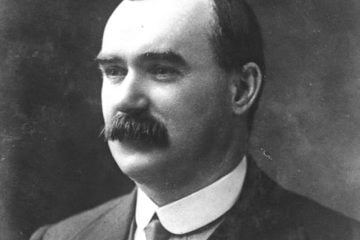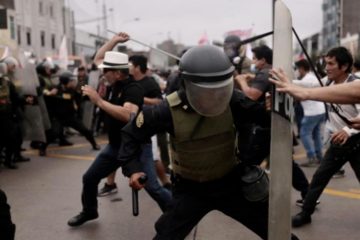At the recent international congress of the International Marxist Tendency, two British comrades, members of the Marxist Student Federation, had a discussion with some of our comrades working in Pakistan, about the present situation there and the work that the comrades in Pakistan are doing, with particular reference to the student movement.
The current situation in Pakistan reveals the global crisis of capitalism at its most barbarous. Historically and today, it is a country ravaged by imperialism. Most recently, the country’s economy has been torn between the powers of the IMF (which largely represents the economic interests of the USA) on one side, and China on the other – both seeking to profit from the weak Pakistani economy, where many workers live on only 3 dollars a day. The global crisis of capitalism over the past decade has hit Pakistan particularly hard, and the country is in large international debt and struggling with a colossal trade deficit. The conditions of life for millions of people are going from bad to worse every day.
In large parts of the country, feudal power structures still linger on despite the dominance of capitalism. Tribal law relegates women to a sub-human position, and serfs are regularly beaten by their lords. It was only a few years ago that a young boy was pushed by his lord into a grain threshing machine, resulting in both the boy’s arms being torn from his body, and yet the lord was never imprisoned. These terrible conditions of life for the working class and peasant population have resulted in a surge in the recent election for anti-establishment candidates, as – much like all over the world – the traditional parties have lost their support from the masses. The traditional parties do still, however, find some support in the military, and are still heavily involved in vote-rigging.
These conditions were the backdrop to our discussion with the comrades from Pakistan. They explained to us how this crisis of Pakistani capitalism, just like the wider crisis happening across the globe, was radicalising the youth to the side of the working class, and the most oppressed layers of society. The students are almost always the first to support the calling of any strike action, they told us. This support is not just passive messages of solidarity, but instead active engagement and action.
In Pashtun regions of the country, universities have become the centres of the Pashtun Tahafuz Movement (PTM), which is fighting for the rights of the Pashtun minority in Pakistan. Students have been quick to play a big part in this struggle, and the organiser of the PTM has himself only just graduated. They stand unafraid of the repression they might face and are prepared to fight against the brutal thuggery of the Pakistani state.
Astronomically high tuition fees for University have fueled the developing radicalization of the university students. Education in Pakistan remains a privilege of the elite. Poorer students are priced out of university further and further, with fees currently rising by about 50% each year, already far higher than the average worker could possibly afford. The Progressive Youth Alliance (PYA) calls on the government to establish free education for all, and takes a revolutionary position against the state and capitalism in order to achieve those demands.
This resonates with large layers of the youth. Seeing the inability of the current system to provide basics like affordable education, they increasingly look towards revolutionary politics as the solution. This immediately raises the need for students to organise themselves to achieve their political demands and connect with the general working class movement. This organisation requires structures, and thus the movement is brought into conflict with the repressive 30-year ban on student unions. Not only has this allowed tuition fees to continue to rise without any organised student opposition, but it has also resulted in any lack of accountability in the running of Universities, with students regularly abused and intimidated for daring to challenge university management.
The PYA actively campaigns for this draconian ban to be lifted, and organise themselves regardless. They have successfully linked up with the struggle of striking university workers in the process. The militant attitude and activity of the PYA results in intimidation, threats, and violence from the university management, the state, and other reactionary elements in society. It was only last April when comrade Mashal Kahn was brutally murdered for campaigning against university fees in the Pashtun region.
This radicalisation and organisation of the students has not been limited to one area of Pakistan, but has been seen across the country. In a country with such deep ethnic and national divisions as exist in Pakistan, this is significant. Just like the collapse of the traditional parties and the general politicisation of the masses, it flows from capitalism being in a blind alley, unable to offer a way out of the economic crisis. The youth and working class are seeking a united revolutionary solution.
The dedication, bravery and skill of the Pakistani comrades, working in such difficult conditions against capitalism, is an inspiration to all workers and students around the world. With such a wide range of experience in difficult struggles, we asked what advice could they give to students fighting for socialism in Britain today. Their response was that firstly, we should always find a way to connect the movement of the students to the working class; the only true force in society that can truly realize our revolutionary goals.
Secondly, they highlighted the importance of the work of educating and training. Without the correct ideas and the correct programme we are lost. Many disregard theory, or see it as of secondary importance, something to liven up a discussion in the pub; but those who move into political action without it are lost. It is only by grounding ourselves in the ideas of Marx, Engels, Lenin and Trotsky that we can hope to win against the powerful enemies that stand in front of us in the struggle against global capitalism.
by Thomas Soud (Warwick Marxists) and Jonny Lees (Leicester Marxists)




0 Comments